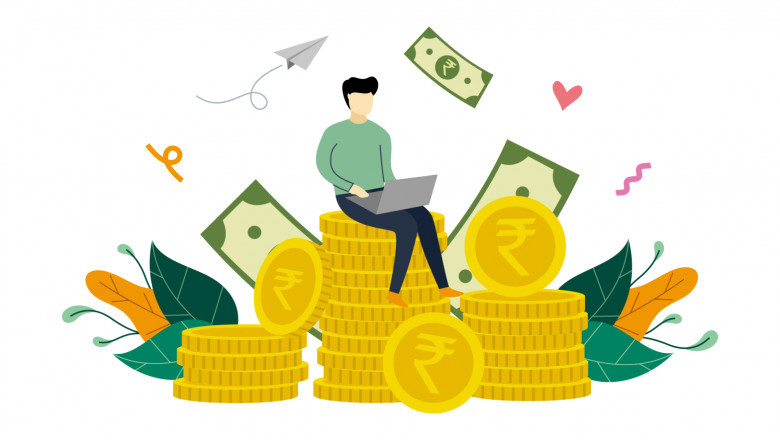views

Managing personal finances can be challenging, especially with all the expenses that come with everyday life. However, improving your financial situation doesn't have to be overwhelming. By making small, consistent changes and adopting smarter habits, you can start saving money and building wealth. In this blog, we’ll cover how to save money and improve personal finance step by step, making it easier for you to take control of your financial future.
💡 Why Is Saving Money Important?
Saving money is crucial because it helps you:
-
Build an emergency fund for unexpected expenses
-
Pay off debts faster
-
Save for retirement or large life goals
-
Reduce financial stress and achieve long-term financial freedom
By implementing practical strategies, you can start improving your personal finance today.
🏦 Tips on How to Save Money and Improve Personal Finance
1. Track Your Spending
The first step to saving money is understanding where your money is going. Use budgeting apps or a simple spreadsheet to track your income and expenses. Look for patterns—are there subscriptions you don’t use? Dining out too often? Tracking your spending helps you spot areas where you can cut back.
2. Create a Budget
A budget is a roadmap for your money. Set realistic spending limits for categories like housing, transportation, entertainment, and groceries. The 50/30/20 rule is a good place to start:
-
50% of your income goes to needs (rent, utilities, groceries)
-
30% goes to wants (entertainment, dining, travel)
-
20% goes to savings and debt repayment
This method helps you prioritize your spending and ensures you’re saving for the future.
3. Set Financial Goals
Whether it’s saving for a vacation, paying off debt, or building a retirement fund, having clear financial goals helps you stay focused. Break down big goals into smaller, actionable steps. For example, instead of just saying, “I want to save for retirement,” break it down into, “I will contribute $500 to my retirement account each month.”
4. Cut Unnecessary Expenses
Take a hard look at your current spending and identify areas to cut back. This could include:
-
Canceling unused subscriptions
-
Reducing impulse buying (set a 24-hour rule before making non-essential purchases)
-
Cooking more at home instead of dining out
-
Switching to less expensive phone plans or insurance providers
5. Build an Emergency Fund
Aim to set aside 3 to 6 months of living expenses in an easily accessible savings account. This fund is your safety net for unforeseen expenses like medical bills, car repairs, or job loss. Building an emergency fund gives you peace of mind and prevents you from going into debt when life throws a curveball.
6. Automate Your Savings
Set up automatic transfers to your savings or investment accounts right after payday. This way, you’re prioritizing savings before spending. Even if you can only start with a small amount, consistency is key. Over time, this habit will grow your savings significantly.
7. Pay Off High-Interest Debt
High-interest debts, such as credit card balances, can quickly spiral out of control. Focus on paying off these high-interest debts as soon as possible. The debt snowball or debt avalanche method can help you prioritize which debts to pay off first:
-
Debt Snowball: Pay off the smallest debt first, then move on to the next smallest.
-
Debt Avalanche: Pay off the debt with the highest interest rate first.
8. Invest for the Future
Start investing as early as possible to take advantage of compound interest. If you’re new to investing, consider low-cost index funds or mutual funds. Also, contribute regularly to retirement accounts such as a 401(k) or IRA. The earlier you start, the better your long-term financial security.
9. Educate Yourself About Personal Finance
The more you know, the better decisions you’ll make. Read books, follow personal finance blogs, or listen to podcasts. Educating yourself on topics like investing, taxes, and insurance will empower you to manage your finances more effectively and make informed choices.
📈 Simple Ways to Improve Personal Finance
-
Review your credit report regularly: Understanding your credit score and history can help you improve your financial standing.
-
Use cashback or rewards programs: Take advantage of rewards for everyday spending, but always pay your bills in full to avoid interest charges.
-
Save windfalls: Tax refunds, bonuses, or gifts should be saved or used to pay down debt rather than spent impulsively.
-
Negotiate bills: Call service providers (internet, insurance, etc.) and ask for better rates or discounts.
📌 Final Thoughts
Improving your personal finance is a journey, and it requires discipline and patience. By following these tips on how to save money and improve personal finance, you’ll be on the path to financial success. Small adjustments over time can lead to big results, whether it’s creating a budget, building an emergency fund, or investing for the future.



![TrimIQ [Weight Loss Powder] – Why Nutritionists Are Recommending This Over Pills?](https://theconnectly.com/upload/media/posts/2025-06/13/trimiq-weight-loss-powder-why-nutritionists-are-recommending-this-over-pills_1749819087-s.jpg)








Comments
0 comment